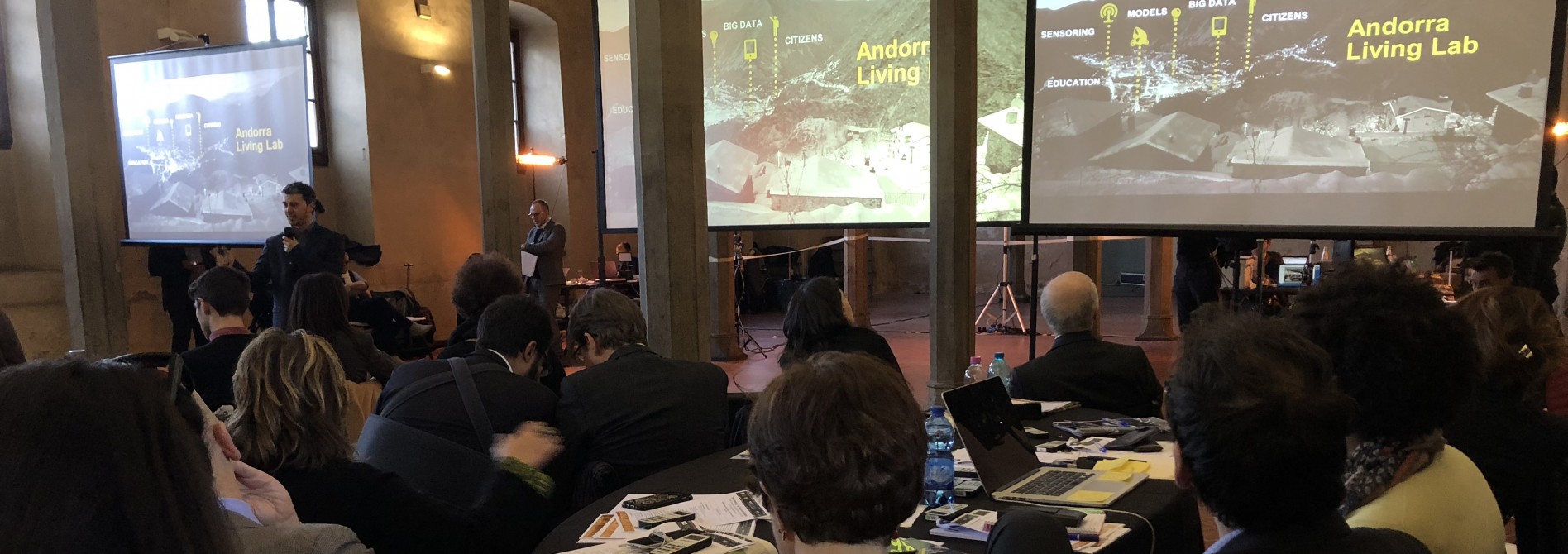Invited to Florence by the Italian Ministry of Culture and Tourism, the director of ActuaTech Foundation, Marc Pons, participated on Friday, March 22nd, in the Town Meeting Top Italian Destinations congress. Pons detailed how Andorra works with innovation in the field of tourism, from the perspective of data analysis and the use of sensors to improve its efficiency, competitiveness and sustainability.
The event is organized within the framework of Italy’s strategic Tourism plan, which aims to develop and manage sustainable tourism flows in major destinations.
Pons participated in an event attended by 150 experts from the five main Italian tourist destinations: Rome, Florence, Naples, Venice and Milan. In these cities, given the world tourism increase, a public debate is taking place on how to sustainably manage tourism flow, which involves the entire community.
In this regard, Tourism of Italy’s general manager, Francesco Palumbo, stressed that “we invited Andorra because it is a destination where the tourism sector has developed strongly and is now moving in the field of innovation. Being a very important worldwide tourist destination, it is crucial for us to know those regions that are more advanced in the use of technology for tourism management”. Palumbo reiterated that “we are very interested in learning about Andorran innovation projects”.
The director of the ActuaTech Foundation said “for us it is very important that relevant countries such as Italy observe our work. We have shared projects being promoted by Actua and we have had the opportunity to exchange knowledge with experts from the main Italian cities”.
The working sessions served to debate policies for tourism flows management, problems, social needs and its possible solutions. In this sense, the director of ActuaTech Foundation presented Big Data projects featuring analysis of tourist events, mobility and sustainability that are being carried out in Andorra. Pons focused most of his intervention on how to develop tourism data analysis skills, also in a predictive function, and how to use it to develop personalized tourism services, improve the visitor’s experience and make tourism flow more sustainable.
During the event, many working sessions were organized related to smart cities, to improve the tourist experience, economic and social impacts for territories, and optimize mobility. The aim is to coordinate the needs of tourists with those of residents and at the same time promote accessibility to the periphery’s attractions.
The event is organized within the framework of Italy’s strategic Tourism plan, which aims to develop and manage sustainable tourism flows in major destinations.
Pons participated in an event attended by 150 experts from the five main Italian tourist destinations: Rome, Florence, Naples, Venice and Milan. In these cities, given the world tourism increase, a public debate is taking place on how to sustainably manage tourism flow, which involves the entire community.
In this regard, Tourism of Italy’s general manager, Francesco Palumbo, stressed that “we invited Andorra because it is a destination where the tourism sector has developed strongly and is now moving in the field of innovation. Being a very important worldwide tourist destination, it is crucial for us to know those regions that are more advanced in the use of technology for tourism management”. Palumbo reiterated that “we are very interested in learning about Andorran innovation projects”.
The director of the ActuaTech Foundation said “for us it is very important that relevant countries such as Italy observe our work. We have shared projects being promoted by Actua and we have had the opportunity to exchange knowledge with experts from the main Italian cities”.
The working sessions served to debate policies for tourism flows management, problems, social needs and its possible solutions. In this sense, the director of ActuaTech Foundation presented Big Data projects featuring analysis of tourist events, mobility and sustainability that are being carried out in Andorra. Pons focused most of his intervention on how to develop tourism data analysis skills, also in a predictive function, and how to use it to develop personalized tourism services, improve the visitor’s experience and make tourism flow more sustainable.
During the event, many working sessions were organized related to smart cities, to improve the tourist experience, economic and social impacts for territories, and optimize mobility. The aim is to coordinate the needs of tourists with those of residents and at the same time promote accessibility to the periphery’s attractions.

